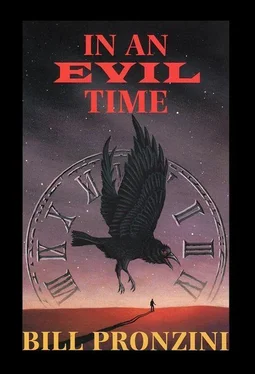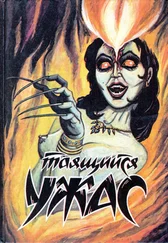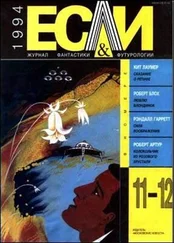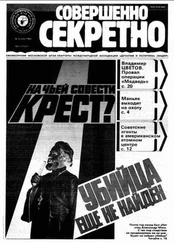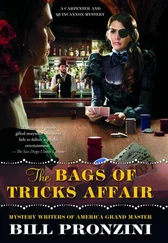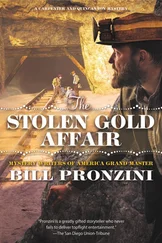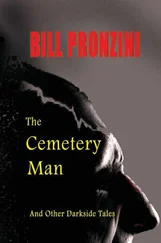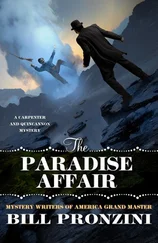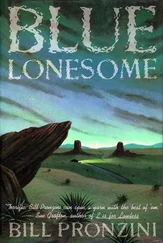The cop finished writing and moved toward him. Hollis stood rigid.
And the cop said, “Okay,” and extended the ticket. He took it automatically; a little gust of wind tried to tear it from his fingers and he tightened his grip. “Sorry to have to write you up, but running a stop sign the way you did can cause a serious accident.”
“Yes.
“Better be more careful from now on.”
“Yes.”
“Might want to go on home instead of doing any more driving around. Patch things up with your wife.”
“Yes.” As if his brain had slipped into a one-word loop.
“Good luck,” the cop said, and made a little gesture with his forefinger that was half warning and half salute, and turned away.
Hollis shut himself inside the Lexus. Good luck. Jesus, good luck! It took him two tries to turn the ignition, a few seconds more to steady himself before he eased out onto the road.
The cop followed him. He’d expected that; he drove well within the legal limit, straight down Crater Road to the intersection with East Valley Road. Full stop at the sign there, flick the turn signal for a left onto East Valley. He made the turn, and again the cop followed, hanging back by a hundred yards or so and matching his speed as he accelerated.
Hollis’s eyes kept skipping between the road and the rearview mirror. What if he follows me all the way home? I can’t go home with Rakubian in the car, I can’t do that. Have to stop somewhere, 7-Eleven, service station ... shake him somehow and pray I don’t run into him again. If he spots me driving back this way he’ll wonder what I’m up to, maybe pull me over again, demand to look inside the trunk...
The trailing lights abruptly cut away: the cop had turned off onto the road paralleling Crater, heading back toward town.
He was alone again, safe again, with Rakubian’s corpse.
The corkscrew climb into the hills seemed to go on and on endlessly. He felt exposed up here, too, like a bug crawling across a piece of glass; headlights on these mountain roads could be seen for miles, all across the valley and the town. But not tonight — he kept reminding himself of that, for all the good it did. Tonight there was haze in the valley and along the spine of the hills, a thin river of fog flowing down from the north that blurred the distant lights. Another thing in his favor, another reminder: nobody paid any attention to headlights in the Paloma Mountains, took them for granted. If he came upon another car, even a county sheriff’s patrol, the occupants would assume he lived here or was visiting someone who did. The only thing he had to worry about now was driving slow and careful on the sharper turns.
He was still afraid.
The encounter with the cop had solidified his fear, jammed it down tight inside him. It would not break loose until he was finished with Rakubian, maybe not even then. He wondered if it would stay with him long after tonight, for as long as he lived, a different kind of cancer inexorably eating away at him.
He needed to pee again. His bladder felt huge, an overinflated sac with needles attached to the outside... bloated and stabbing pains both. Partway up the winding road, in a little copse of trees, he stopped the car and got out and unzipped. The burning, this time, was acute enough to make him grit his teeth. But he was done quickly for a change, and the pains were gone by the time he started driving again.
He reached the gate to the Chesterton property without seeing another set of headlights. Unlock the gate, drive through, relock it behind him. Tires crunching gravel as he crawled along the newly built road. The construction site loomed ahead, dead-still and full of broken shadow shapes. Thin curls of mist drifting through the headlamp beams made it seem an even eerier place — like a cemetery in the dead of night. Some of the shapes appeared and disappeared as he swung in among them, and his mind turned them into graveyard images: foundation slabs and staked sections became burial plots, portable toilets became headstones, Dulac’s trailer and the heavy equipment became chimerical crypts.
His mouth was dry, his face hot, as if he might be running a fever. His consciousness began to shrivel again. Defense mechanism, and he didn’t fight it this time. The only way he would be able to get through what lay ahead was to do it mechanically — an android drone functioning on programmed circuitry.
He braked long enough to orient himself, crawled ahead at an angle toward the wine cellar excavation. The beams picked it out; it might have been a mine shaft cut into the hillside, or an unfinished mausoleum. Tiered rock and dirt gleamed a short distance to the right. He drove as close as he could to the hillside, turning the wheel to bring the rear end around and his lights full on the earth dump. When he shut them off, the darkness pressed down so thickly it was as though he’d gone blind. The illusion brought a brief twist of panic; he opened the door to put the dome light on, kept it open for several seconds after he swung out. Then he stood blinking, scanning left and right, until his eyes adjusted.
Cold up here, but not as cold as it had been in San Francisco. Not as much wind, either, the fog moving in slow, sinuous patterns. Cricket sound rose and fell; the wind carried the faint rattle of disturbed branches, the odors of pine, madrone, damp earth. The lights of Los Alegres were smeary pinpricks in the ragged veil of fog.
Top of the world, Ma.
He shivered, swung around to open the trunk. He didn’t touch the body, not yet. Pick, shovel, disassembled push broom from the garage at home. Utility lantern. Pair of bib overalls, pair of heavy work gloves, pair of old galoshes to protect his shoes, a worn khaki shirt. When he had all of these on the ground, he shed his jacket and pullover and tossed them onto the front seat; donned the shirt, overalls, galoshes, and gloves. Then he lighted the lantern, followed its beam to the earth dump.
The wheelbarrow wasn’t where he’d seen it on Thursday. Took him a couple of minutes to track it down, over on the far side. He ran it back to the car, the lantern riding inside so that its long ray jumped and wobbled and threw crazy shadows against the fog. He loaded the tools, humped the barrow over bare ground, over a pair of poured slabs and inside the excavation.
In there he positioned the lantern so the beam held steady on the center section of the floor. Lifted one of the plywood sheets, propped it against the wall out of the way; did the same with a second sheet. The cleared space... long enough and wide enough? Yes. He flexed the muscles in his arms and back. Not thinking now, all but shut down inside.
He hefted the pick and began to dig.
Saturday Night
Pick. Shovel. Loose dirt piled on the plywood to one side. Clods and chunks of rock into the wheelbarrow. Pick. Shovel. Loose dirt. Clods, chunks. Full barrow out to the dump and back again empty. Pick. Shovel...
He lost all sense of time. His perceptions narrowed to light and dark, cold and sweat-heat, aching strain in arms and shoulders and lower back, chink of metal on stone, thud of metal biting into earth. One barrow full, two barrows full, three barrows full. And the hole growing wider, deeper — standing in it, climbing out, dropping back in until one loose, sloping side touched him at mid-thigh. Deep enough. His strength was flagging by then; the pick had grown as heavy as a ten-pound sledge.
He tossed it out, sent the shovel after it and himself after the shovel. His body begged for rest. Instead he lifted the barrow’s handles, grunting, and slogged it out and across to the earth pile; emptied it, then wheeled it around to the rear of the Lexus. His eyes stung with sweat and grit. He wiped them clear on his shirtsleeve as he opened the trunk.
Читать дальше
